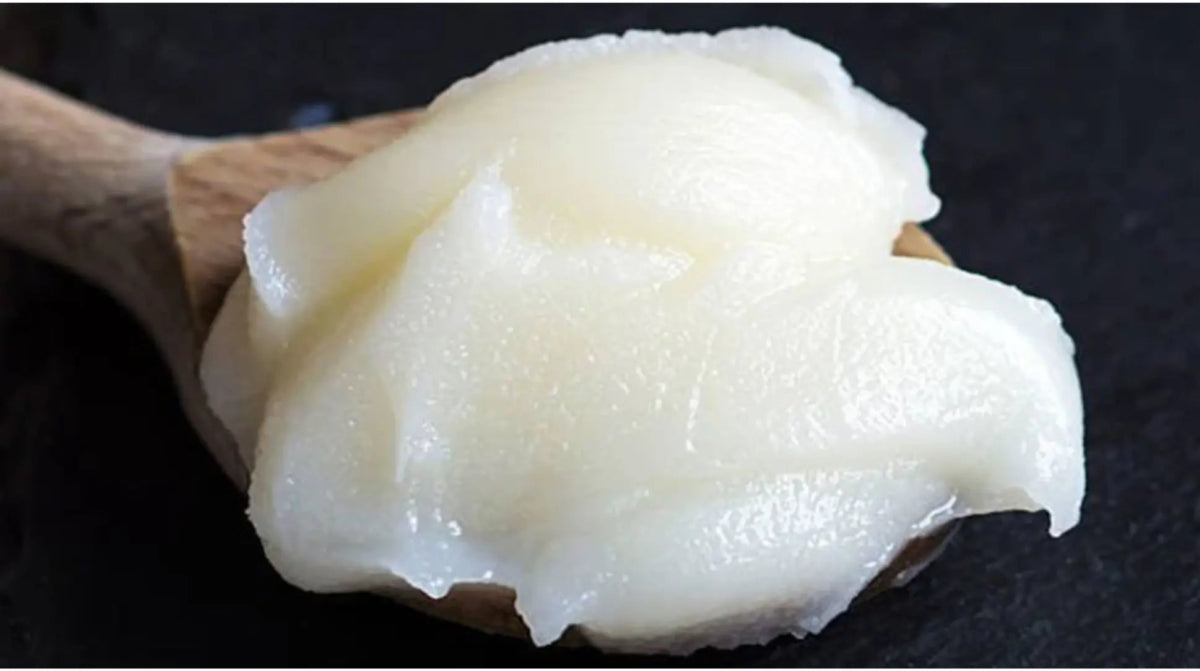
- Tallow is a rendered form of animal fat, rich in natural vitamins and offers protection against UV rays without harmful chemicals like oxybenzone and avobenzone.
- Tallow closely matches natural skin oils, making it ideal for skincare products.
- The growing demand for natural sunscreens has led to an increase in tallow-based products and DIY recipes, offering a sustainable sunscreen choice free from potential health risks.
Introduction
Are you concerned about the ingredients in your sunscreen? Many conventional sunscreens contain chemicals like oxybenzone and avobenzone, which have been linked to hormone disruption and skin sensitivities. As a result, many consumers are looking for natural alternatives. One such ingredient gaining attention is tallow, a rendered form of animal fat. But is it truly an effective sunscreen? Let’s explore the facts behind tallow’s skincare benefits and its potential as a sunscreen ingredient.
What Is Tallow?
Tallow is derived from the fat of ruminant animals, most commonly cows or sheep. Traditionally used in soaps, moisturizers, and balms, it is rich in naturally occurring fatty acids, vitamins A, D, and E, which help nourish and protect the skin. These properties make tallow a valuable ingredient in skincare, but how does it compare to conventional sunscreens?
Does Tallow Provide Sun Protection?
Tallow itself does not function as a sunscreen in the way that mineral-based ingredients like zinc oxide and titanium dioxide do. It does not effectively block or absorb ultraviolet (UV) radiation on its own. However, some of the fatty acids found in tallow, such as stearic acid and palmitic acid, can offer minimal moisture retention and protective properties, which may help support the skin’s natural barrier.
Some natural oils and fats (like raspberry seed oil and carrot seed oil) have been suggested to have mild SPF properties, but these claims are not backed by rigorous clinical studies. There is no conclusive scientific evidence to support that tallow provides a measurable SPF level on its own.
Tallow as a Skincare Ingredient
While tallow does not function as a standalone sunscreen, it does have several skincare benefits:
Deep Moisturization: Tallow closely resembles the composition of human sebum, making it an excellent natural moisturizer that penetrates deeply.
Rich in Fat-Soluble Vitamins: Vitamins A, D, and E in tallow help support skin health, promote repair, and provide antioxidant properties.
Skin Barrier Protection: Tallow forms a breathable layer on the skin, helping to lock in moisture and provide a mild protective effect against environmental stressors.
Because of these benefits, some natural sunscreen formulations include tallow as a base ingredient alongside proven UV filters like non-nano zinc oxide to enhance moisturization and application.
Scientific Evidence on Natural Sun Protection
To be classified as a sunscreen, a product must undergo standardized SPF testing, which measures its ability to block UV rays. The SPF (Sun Protection Factor) rating determines how long the product can protect the skin compared to unprotected exposure.
Currently, no scientific studies have confirmed that tallow provides significant UV protection comparable to mineral or chemical sunscreens. If you are looking for a natural sunscreen, it's best to choose one that contains zinc oxide or titanium dioxide, which have been extensively researched and approved for sun protection by regulatory agencies like the FDA and TGA. Sky and Sol's tallow sunscreen has been proven to provide SPF protection according to FDA guidelines
How to Use Tallow in a Sun Care Routine
While tallow should not be relied on as a primary sun protectant, it can still be incorporated into a sun care routine for its skin-nourishing benefits:
- Use a Broad-Spectrum Sunscreen: Opt for a mineral sunscreen with zinc oxide or titanium dioxide for proven UV protection.
- Layer with Tallow-Based Moisturizers: Apply a tallow balm or moisturizer before sunscreen to enhance hydration and support skin resilience.
- After-Sun Care: Use tallow-based products to soothe and nourish the skin after sun exposure, as they help repair and replenish moisture.
Addressing Common Misconceptions
There are several myths surrounding tallow and its sun protection abilities. Let’s clarify them:
Myth: Tallow has a natural SPF.
Reality: Tallow does not have a scientifically verified SPF rating and does not provide reliable UV protection.
Myth: Tallow-based sunscreens are just as effective as conventional ones.
Reality: Only sunscreens containing approved UV filters like zinc oxide or titanium dioxide have been tested for broad-spectrum protection.
Myth: Tallow feels greasy and has a strong odor.
Reality: Properly rendered tallow can have a smooth, non-greasy texture with minimal scent, especially when blended with other natural ingredients.
Conclusion
Tallow is a highly beneficial skincare ingredient with excellent moisturizing and barrier-protective properties, but it should not be used as a sunscreen substitute. If you’re seeking a natural and safe sun protection option, choose products containing zinc oxide or titanium dioxide, which are clinically proven to block UVA and UVB rays.
By combining tallow with scientifically backed sunscreen ingredients, you can create a comprehensive sun care routine that prioritizes both skin nourishment and UV protection.
Where to Find Tallow-Based Skincare
Many brands now offer tallow-based balms, creams, and moisturizers that complement sun care routines. Look for products made from grass-fed, high-quality tallow for the best skin benefits.
If you’re interested in making your own skincare products, consider DIY formulations that combine tallow with zinc oxide to create a natural, mineral-based sunscreen with added skin benefits.

